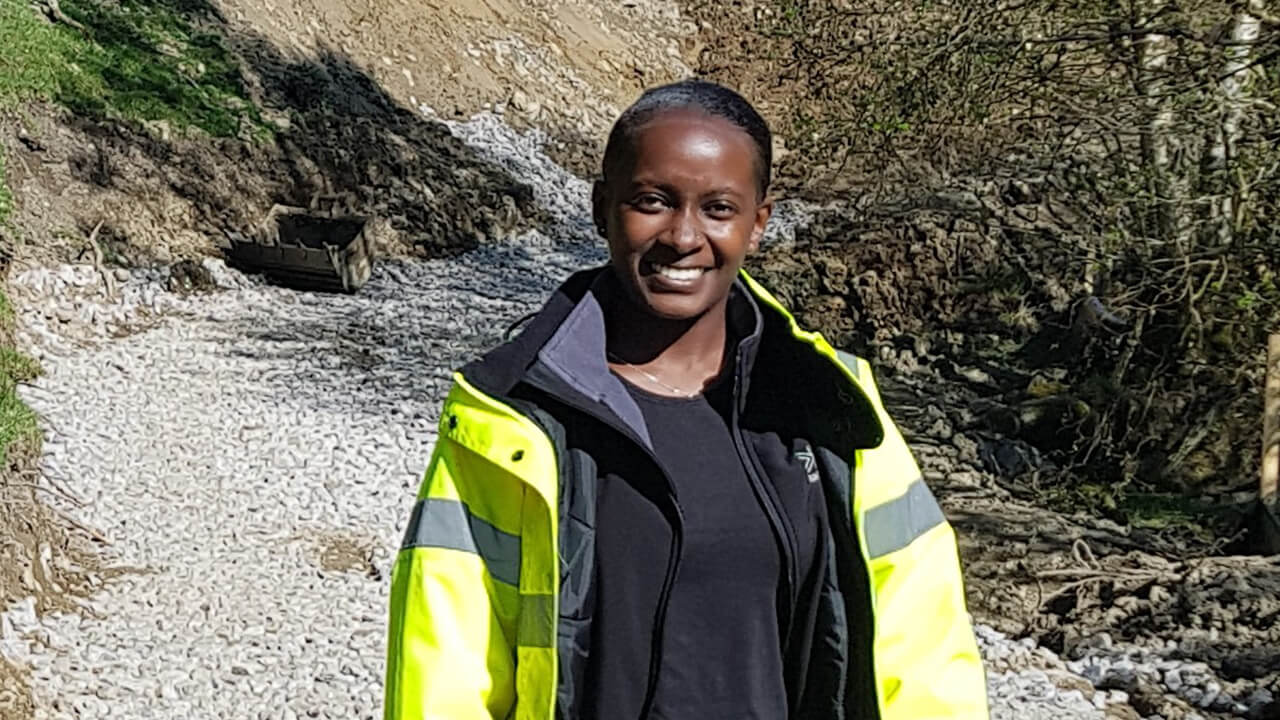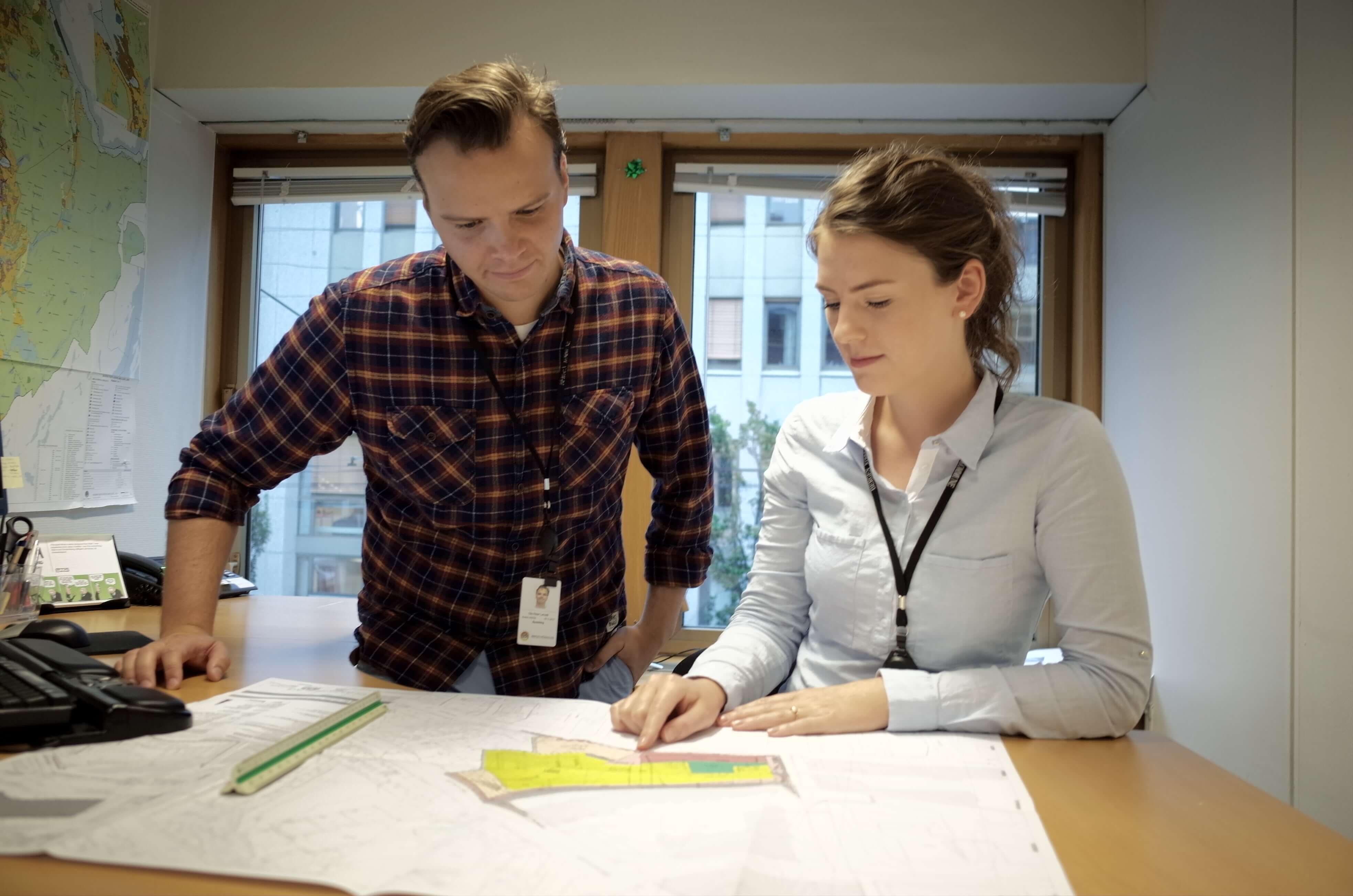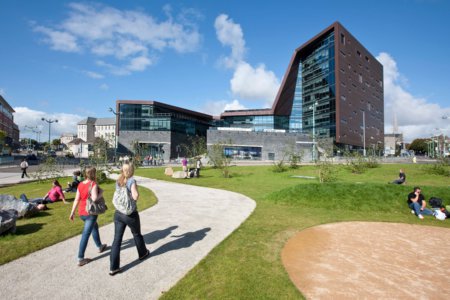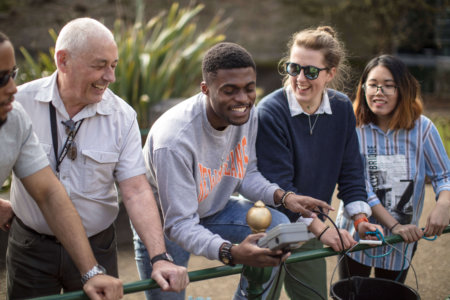There are many reasons to choose the University of Plymouth. Its location in one of the UK’s friendliest cities, being named one of the top 25 institutions globally in the Times Higher Education Impact Rankings 2021, and its status as a sustainable university barely begins to scratch the surface of its accolades.
For Rachel Samuel, a graduate of the MGeol (Hons) Geology course, her reason for choosing Plymouth was simple. “Plymouth is a beautiful location to study. The campus is based on one site, which is something I also found convenient,” Samuel says.

Rachel Samuel likes the scenic location of Plymouth. Source: University of Plymouth
With the wild and unspoilt Dartmoor National Park located to the north and pristine coastlines to the south, both are within easy reach of the Plymouth city-centre campus, which Samuel also found highly appealing.
Breath-taking scenery aside, its strategic location offers students a platform to conduct important fieldwork as part of their learning experience at the School of Geography, Earth and Environmental Sciences, only a short journey from campus. Their fieldwork programme allows students to experience and develop a range of essential skills outside of the laboratory or lecture theatre. The local nature of the fieldwork is not only convenient but also sustainable; however, there are also opportunities for exploring other environments not present in the UK on a number of overseas trips.
The geography programmes offer field courses to Western Australia, Western USA, Iceland and France, while geology students visit the US and Italy as part of their course. They also have the opportunity to undertake dissertation work overseas. In the environmental sciences course, students travel to the environmentally interesting island of Malta. Little wonder why Plymouth’s fieldwork programme is enjoyed and appreciated by students.
Samuel adds: “The range of fieldwork offered with the course was fantastic. I have seen some beautiful outcrops of geology in the south-west of England, Cyprus and the Isle of Skye. There’s nothing like being able to test your skills and see real geology.”
Many employers also value the skills obtained by students who go on local and international fieldwork expeditions as they develop highly desirable skills, including data collection, independence and the ability to work in different settings.
An unparalleled learning environment
Plymouth’s School of Geography, Earth and Environmental Sciences has four broad subjects with both undergraduate and postgraduate options: Geography, Earth Sciences, Environmental Science and Chemistry.
The university has a rich history of welcoming international students for over 25 years, and many of its international graduates can attest to the benefits of their programmes.
Désirée Lucchese, an Italian graduate of the BSc (Hons) Environment Science programme, describes her time at Plymouth as an “extremely valuable and holistic learning experience,” thanks to the fieldwork taken in her first year.
Norwegian students Ole Petter Løtvedt and Ida Martine Kästel said their MSc Planning course was a great fit for them as international students, adding that their lectures were held by knowledgeable and inclusive academics.
“We feel that the MSc has prepared us for the variety of challenges that surface when planning in the built environment. MSc Planning gave us an insight into what it means to be a planner. We were encouraged to think critically and be reflective,” they said.

Tania Xin Tang enjoyed her MSc course at Plymouth. Source: University of Plymouth
Tania Xin Tang, who graduated with a MSc Environmental Consultancy, explains that her programme offered many opportunities for students to be highly involved and engaged in industrial practice, either by communicating with people coming directly from different sectors of the industry, or through the industrial internship experience.
“Students on our programme had good ideas of what they wanted to do and how they could do it before graduation, which I think is a high achievement for a master course,” she says.
Courses aside, students also have access to many exceptional facilities at Plymouth to facilitate their learning, including ISO accredited chemistry laboratories, geography and Earth science laboratories, the GeoMapping Unit and the Marine Station. The LABplus Resource Centre and Plymouth Electron Microscopy Centre are also available for practical learning and specialised research.
A supportive learning environment
In addition to a number of excellent technical facilities, Plymouth has also invested in a range of services to provide 360° support to their students that covers various aspects of their needs — from funding to mental health and career support. This is part of the ethos that students are treated as partners in the university journey.
Those concerned about funding, for instance, can explore Plymouth’s scholarships, awards or discounts for international students. The university is also home to the Student Wellbeing Services, a multi-disciplinary team that offers mental health, counselling, pastoral and spiritual support, as well as disability services.
Students who need support with their learning can also tap into the expertise of the learning development team where they can benefit from faculty and school-specific support, individual tutorials and digital resources for independent and distance study.
Those who are looking to enhance their career-readiness can tap into the friendly Careers Service, which offers information, advice and guidance for students and graduates on building skills, experience and contacts to enhance their employability. Plymouth practices an “open door policy” for students needing guidance from their academics and technical staff as well. Collectively, these experiences ensure students enjoy the best learning experience possible and make the most out of their time at university.
To learn more about the University of Plymouth, click click here.
Follow the University of Plymouth on Facebook, Twitter, YouTube, Instagram and LinkedIn













